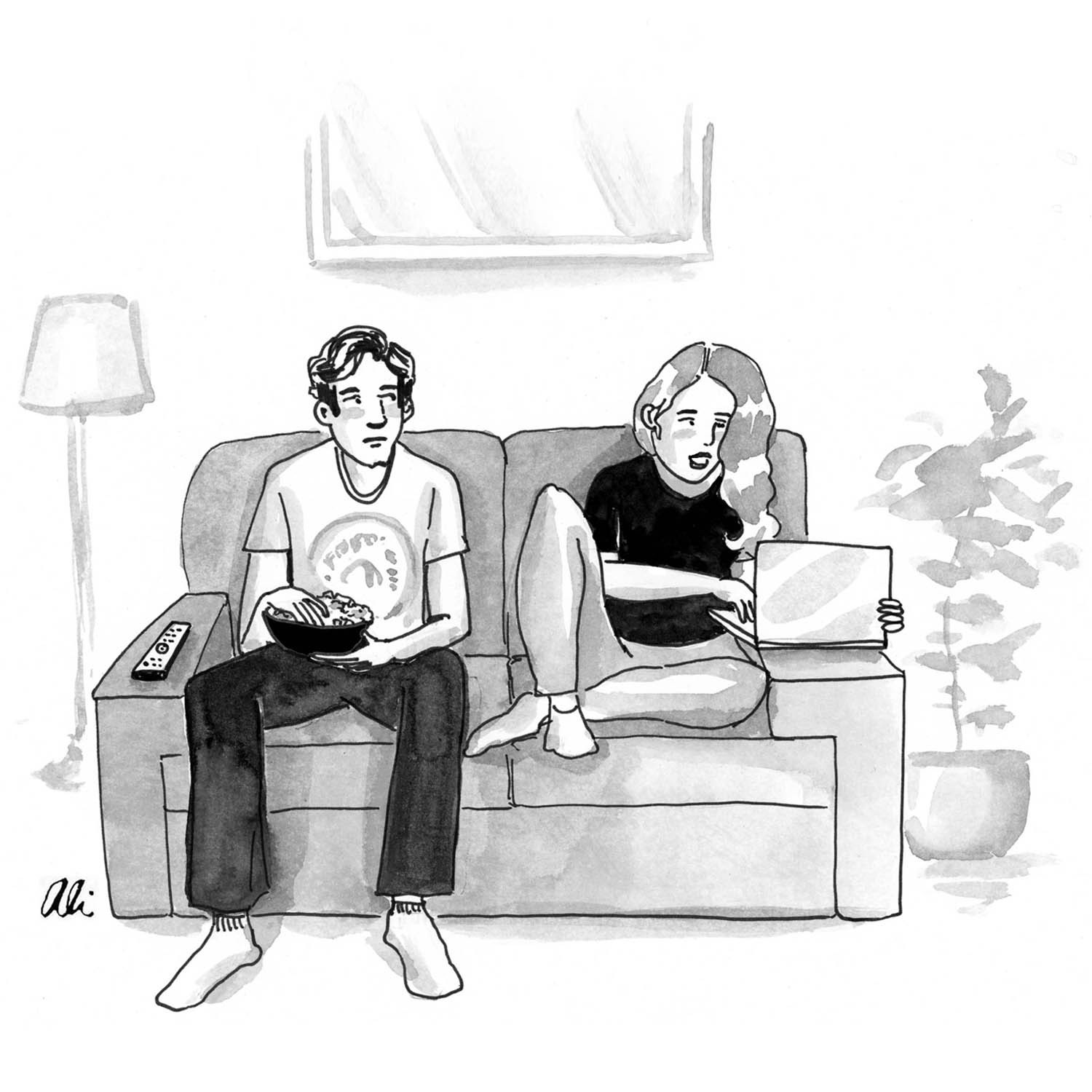In today’s edition, Alex Ross on a Holocaust survivor’s extraordinary story. But first, exclusively for newsletter readers, the editor Tyler Foggatt reports from Vienna, where three shows from Taylor Swift’s Eras Tour were cancelled following a terror threat. Plus:
A Taylor Swift fan in Vienna.Photograph by Alex Halada / Getty
Tyler Foggatt
Senior Editor
Earlier this week, I travelled to Vienna, Austria, to attend one of the three Taylor Swift concerts scheduled for this weekend. The city was overrun by Swifties, many of whom had made epic journeys to get to Vienna, the second-to-last stop on the European leg of the Eras Tour. My friend, who had flown in from Tirana, Albania, said that she encountered a group of girls at the Tirana airport who were giddily singing “I Can Do It with a Broken Heart.” They had come from Skopje, Macedonia—at least five hours away from Tirana by bus—and were headed to Vienna to fulfill what they described as their “lifelong dream of seeing Taylor.”
On Wednesday evening, less than twenty-four hours before the first concert was scheduled to begin, I was at a brewpub near the center of the city, when all of a sudden people began emitting loud sobs, looking at their phones. All three concerts had been cancelled, owing to a planned terrorist attack. Austrian authorities had arrested two teen-age ISIS sympathizers who had allegedly planned to “kill as many people as possible,” as one of the suspects reportedly said, using chemical substances, explosives, knives, and machetes. A seventeen-year-old suspect had recently been hired by an events company that was providing services to the stadium where Swift was set to perform. The restaurant, eerily, began playing a sad, acoustic version of “Bad Blood.”
Last year, after seeing a show on the Eras Tour in Philadelphia, I wrote a piece describing, among other things, how safe I felt at the concert—a rarity at any mass gathering in the United States. Other fans, who saw the tour in places like Los Angeles, Kansas City, and Edinburgh, made similar comments online: not once did they worry about a fight breaking out in the crowd or about going to the bathroom alone. The concerts are joyous occasions where even the security guards are singing and dancing. That is what is especially troubling about the events of the past few weeks, which not only include the foiled terrorist plot in Vienna but a stabbing attack in the United Kingdom, at a Taylor Swift-themed dance class, where three young children were murdered and ten others were injured.
In Vienna, the fans—who have been refunded the cost of their concert tickets but not of their extensive travel—are experiencing two feelings at once: relief that everyone is safe, but also devastation that the shows have been cancelled. “We’ve been looking forward to this for a year,” a woman from Spain, who was wearing a denim jacket that she had embroidered with the titles of Swift’s various albums, told me. The city was a beautiful place to be stranded, she said, but “we didn’t come here to see Vienna.” She was reluctant to do much sightseeing, or to go anywhere where there were large crowds.
Some Swifties have been trying to make the best out of a bad situation. They have been gathering at Corneliusgasse (the city’s version of Swift’s “Cornelia Street”) and in the city center, trading friendship bracelets and holding their own impromptu concerts. Last night, my friend and I walked to the city center, where hundreds of Swifties in the outfits they had planned to wear to the show—gold sequinned dresses, floral jumpsuits, cheerleading uniforms—were singing an a-capella version of “Shake It Off.” Two fans even got engaged, as a crowd of people sang “Love Story” around them. On social media, someone compared the horde of singing Swifties to the Whos in Whoville after the Grinch stole Christmas.
Editor’s Pick
Photograph by Dmitrij Leltschuk / laif / Redux
“The word ‘indomitable’ might have been invented for her,” Alex Ross writes of the cellist Anita Lasker-Wallfisch—a Holocaust survivor, memoirist, and “unrepentant smoker,” who once performed Schumann’s “Träumerei” for Josef Mengele. Ross visits her at her home in London, where she had recently sat with the son of Rudolf Höss, the head of the death camp at Auschwitz, for a new documentary, in which Höss’s descendants reckon with his brutal legacy. “She is perhaps the most awe-inspiring person I have ever met,” Ross notes in his piece about an artist who, throughout her remarkable life, has remained resilient and witty and kind.
More Top StoriesDaily Cartoon
“I am watching the Olympics—in between staying on top of the discourse!”
Cartoon by Ali Solomon
More Fun & Games
P.S. Artistic swimming, formerly known as synchronized swimming, is the Olympic event to watch today—despite what its critics, namely Anthony Lane, might say about it. “There are some sports, sadly, that are doomed to stay irredeemable—in which the skills required, however towering, cannot hope to emerge from the smog of absurdity,” he wrote in 2008, from the Beijing Games. “Synchronized swimming, it is universally agreed, presents too inviting a target.”
Hannah Jocelyn contributed to this edition.
Source link : http://www.bing.com/news/apiclick.aspx?ref=FexRss&aid=&tid=66b68c66e22c419daa8f3ced6c787d6e&url=https%3A%2F%2Fwww.newyorker.com%2Fnewsletter%2Fthe-daily%2Fthe-heartbreak-of-taylor-swift-fans&c=17716400949810692609&mkt=en-us
Author :
Publish date : 2024-08-09 10:00:00
Copyright for syndicated content belongs to the linked Source.
